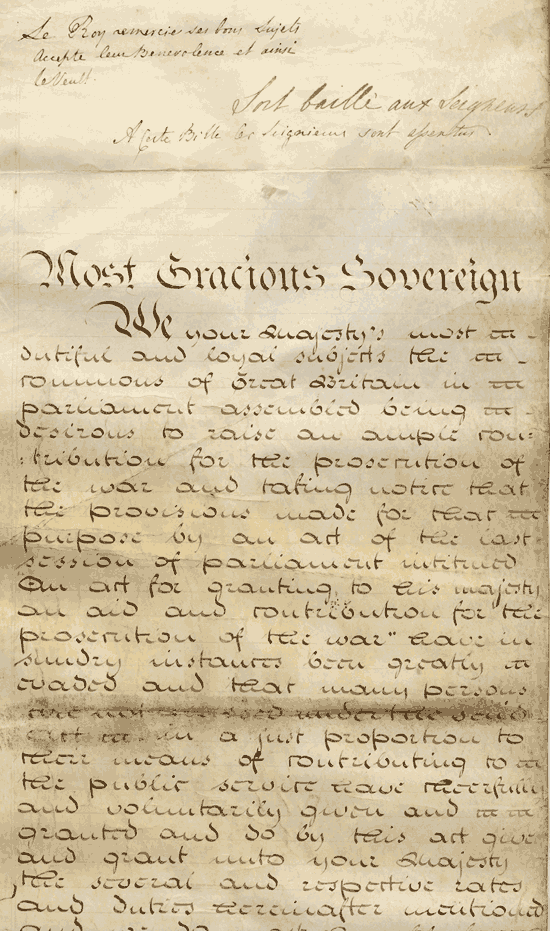Modern income tax started with Pitt the Younger. As PM and Chancellor of the Exchequer, he was faced with shoring up the nation’s coffers for the war with Napoleon.
In Pitt’s1798 budget, he introduced the tax and it came into force on 9 January 1799. Levied at one per cent on annual incomes above £60, it progressed to 10 per pent on those earning over £200.
The tax was said to be temporary, and unlike its cognates across the world, it was, sort of. Pitt’s successor ditched it in 1802 upon the Treaty of Amiens, only to reintroduce it when war broke out again. It stayed until 1816, the year after Waterloo, but brought back in by Peel in 1842.
The first page of Pitt’s legislation is reproduced below. The words include the moral underpinning of a progressive rate which has stayed with us over two centuries; a reasonable rate is:
in a just proportion to their means of contributing to the public service
The tension for Pitt is the same as the tension for today’s national leaders.
The engine of a growing national economy, whether a market economy or, as we have seen in recent decades, a command economy, is an aspiring middle class.
An aspiring middle class must have a moral base in which “just proportion” resonates. But the same class tends to have least access to the prophylactic tool of income tax avoidance, so its oft confused response to proposed shifts in rates reflects the tension.
The middle class is bastion of the rule of law but in the words of one commentator:
The fundamental problem of any income tax law is that it cannot tax economic transactions directly. Rather, it taxes the legal forms that we use to represent economic transaction.
In 2021, the OECD and the G20 announced:
The Two-Pillar Solution will ensure that multinational enterprises (MNEs) will be subject to a minimum tax rate of 15%, and will re-allocate profit of the largest and most profitable MNEs to countries worldwide.
It may be corporation-bashing and it may be a statement of fact to observe that over two centuries MNEs and their predecessors have excelled in prophylaxis and that MNEs are already realigning their avoidances for this “solution” for a digitising and globalising world.
As to legal forms, this was a war with the French, so it is good to see that the certification of the Act is in that peculiarly post-Norman species called law French:
Le Roy remercie ses bons sujets accepte leur benevolence et ainsi le veult [The King thanks his good subjects accepts their benevolence and wishes it thus]
Soit baille aux Seigneurs / A ceste Bille les Seignieurs sont assentus [Let it be referred to the Lords. / To this Bill the Lords assent]
